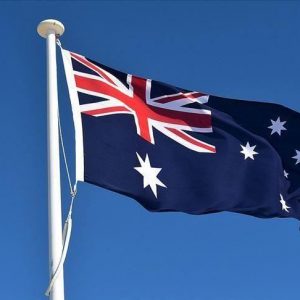Afghan Taliban defend decree on face veil
ISTANBUL – Pushing back criticism over a decree that makes it mandatory for women to wear the face veil in Afghanistan, the Taliban government has said that the country is “predominantly Muslim” and so the order “is in line” with religious and cultural practices.
“Since the people of Afghanistan are predominantly Muslim, the Afghan government considers the observance of the Islamic hijab to be in line with the religious and cultural practices of society and aspirations of the majority of Afghan women,” said Abdul Qahar Balkhi, the spokesperson for the Foreign Ministry.
“Nothing has been imposed on the Afghan people that runs counter to the religious and cultural beliefs of the Islamic society,” Balkhi said in a statement.
The Taliban interim government has faced criticism over its decrees asking women to wear face veils and its failure to come up with a plan to allow girls above sixth grade to attend educational institutions.
Responding to a UN Security Council (UNSC) statement on Afghanistan, Balkhi said the concern raised by the member states on the rights of women is “unfounded.”
The interim government, said Balkhi, “reaffirms its commitment to ensuring the rights of women, children and minorities within the accepted religious and cultural framework of the Afghan people.”
Balkhi, however, said the Taliban, which he referred to as the Islamic Emirate of Afghanistan, “respects” the freedom of religion of people and believes in resolving problems through dialogue.
He said the Taliban government “also expects world countries to discern objective realities of Afghan society, show respect towards the religious and cultural values of the Afghan people and not pass verdicts based on malicious and antagonist reporting of some media outlets, or propaganda by opposition to the Islamic Emirate.”
Welcoming the UNSC statement that called for the revival of the banking and financial systems in Afghanistan, the interim government, however, urged the US to “unconditionally release Afghanistan’s assets and lift all economic sanctions.”
After its exit last August, Washington froze over $7 billion which belong to Afghanistan and were stacked in the country’s foreign reserves, exacerbating the humanitarian crisis in the war-torn country.








